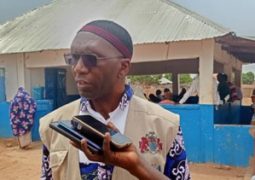
A summary of her 6-page long essay entitled “Human Rights: An Essay” which aptly analyses the complex global human rights terrain and examines how culture influences human rights enforcement, using The Gambia as a case study is published below.
Aminta’s essay on human rights outlines how fundamental rights apply universally and are an entitlement to all human beings, emphasizing their importance regardless of nationality, gender, religion, or social status. The United Nations defines these rights as fundamental and non-grantable by any state, covering both essential protections, like the right to life, and rights that enhance quality of life, such as education and liberty.
She also explored the controversial balance between human rights and national security, citing historical examples where governments compromised individual rights in response to perceived threats. These include: the internment of Japanese Americans during WWII, the USA Patriot Act after 9/11, and surveillance programs worldwide, which infringed on privacy and due process. Cases of torture and indefinite detention in Guantanamo, as well as censorship and repression under the guise of security, are further examples where governments have limited rights. Such measures are often seen as necessary by some for public safety, but others view them as violations of fundamental freedoms.
The essay contrasts the USA’s complex human rights landscape with North Korea’s severe repression, noting that while the U.S. faces ongoing challenges in areas like racial inequality, police violence, and economic disparity, North Koreans endure permeative human rights abuses, including forced labor, restricted freedom, and torture. Mbaye illustrates the different degrees of rights upheld in each nation, pointing out that even with its flaws, the U.S. offers a comparatively safer environment.
Aminta then examines how culture influences human rights enforcement, using The Gambia as a case study. In Gambian society, values like respect for elders and communal harmony sometimes lead to leniency on certain human rights issues. For instance, cultural practices such as female genital mutilation (FGM) conflict with international human rights norms, reflecting the complex interplay between cultural beliefs and human rights.
In the final section, she advocates for gender equality, underscoring historical examples of powerful women, including Cleopatra, Rosa Parks, and Marie Curie, who broke barriers and shaped history. The essay argues that genuine human rights involve equal respect for all, regardless of gender, ethnicity, or background. By fostering tolerance and embracing diversity, Aminta envisions a future where human rights are universally upheld.
The writing competition is an ongoing activity by ANEKED and its partners and is open to all students in senior secondary/high schools in the Gambia. For further more details, ANEKED can be reached at +220 3300 300.
Read Other Articles In National News
MJFC foundation lauds conviction of 3 defaulters for FGM
Sep 7, 2023, 2:04 PM




